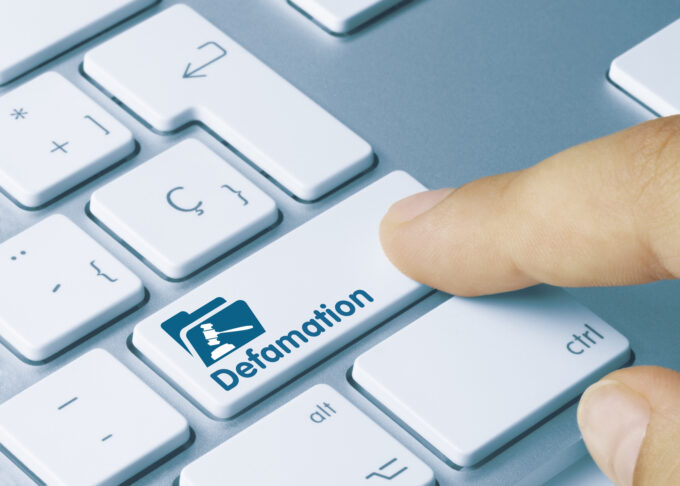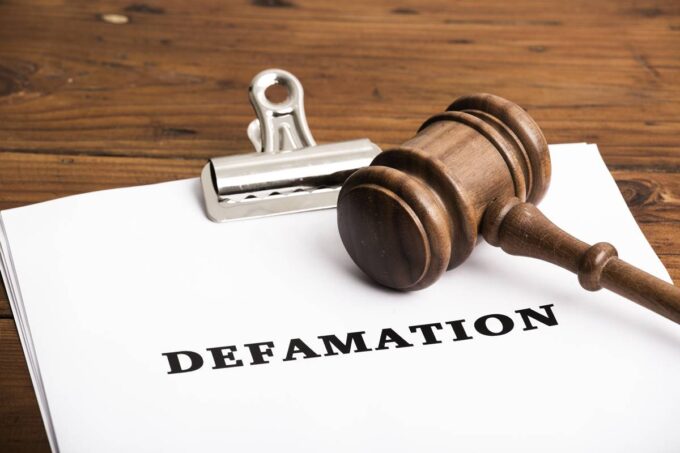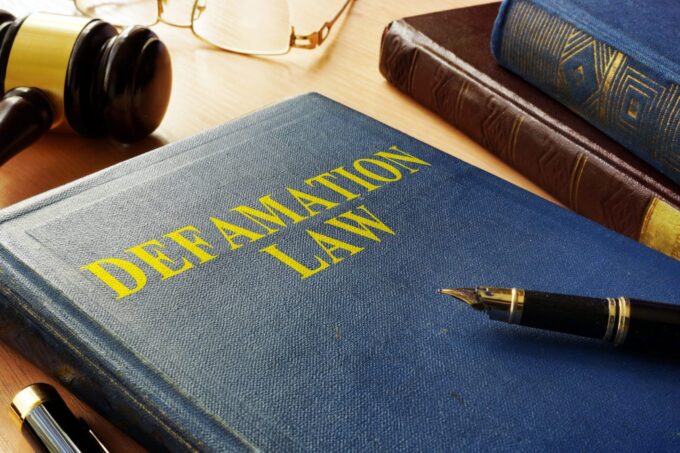Defamation can ruin relationships, result in a lost job or career, and take a considerable amount of time and cash to clear one’s name. With the rapid growth of social media, online defamation has become more common and is truly damaging to an individual’s emotional and mental state. Defamation cases have risen rapidly in recent years; 2016 saw an 85% increase in defamation cases. Many solicitors and courts believe that this rise is due to the popularity and ease of commenting on social media.
What is Defamation?

With the Defamation Act of 2009, Ireland modernized the terms of defamation to include statements that lower the reputation or image of a person. Due to the constitution, every person has a right to protect their good name against slander, libel, vilification, and more. Defamation cases can include: cheating, sympathizing with a terrorist, sale of drugs, and more.
Proving Defamation
While many people can claim defamation through a variety of means, to be successful in proving defamation in court, a defamatory statement must be shown to be:
- A published statement
- Directly referring to the person alleging defamation
- Provably false
The 2009 law on defamation applies to every form of communication: print, online communication, or online reviews. In print refers to physical items such as newspapers, magazines, books, or pamphlets. Online communication broadly includes social media such as Facebook, Twitter, Snapchat, TikTok, while online reviews would cover reviews for online businesses that would come through sites such as Yelp or TripAdvisor. Your reputation oftentimes rests on accurate, positive reviews, particularly if you own a business that needs positive online reviews. Having a damaged reputation can result in the loss of financial support and your quality of life. Even if you don’t own your own business, your reputation may precede you in the workplace. Fighting against defamation is vital to every aspect of your life.
Difficulty with online Defamation

Social media has brought with it a wide variety of difficulties in dealing with online defamation. Before social media, when defamation predominantly occurred in printed mediums, newspapers expected and prepared for eventual defamation suits. Additionally, the evidence was nearly impossible to hide once it had been printed, making defamation cases simpler. Today, online defamation is far more difficult to handle. Theoretically, defamatory statements made online are held liable under defamation laws. But just because a statement is online and defamatory does not mean that a case for defamation along with financial costs and damages can be made.
Partly this is due to the anonymity the internet affords, but also many people who make defamatory statements are not able to pay for damages in a case. Additionally, the European Union laws protect not just internet service providers, but also social media sites from any defamatory statements made by their users. Social media companies lack ‘actual knowledge’ of their user’s activities, meaning they’re not held liable under defamation laws. This means that someone who has been defamed on a social media platform, like Twitter, are limited in their search for legal justice. A better option if defamation exists against you on social media is to bring the defamation case directly to the company, instead of against the individual who made the statement.
Claiming Damages

Naturally, claiming damages for online defamation is difficult and costly, but it can be done successfully, if you meet the following qualifications:
- Afford payment for a good solicitor. As solicitors most often need to be paid before the case, can you afford a good solicitor who will do the appropriate research required for your case? If your case is successful, you may be paid back in full for any damages sustained, but first priority is the money required to pay for a solicitor.
- Evidence. The evidence required cannot be hearsay or knowledge that defamation occurred, but must instead be extremely specific. Exact remarks are required for suitable evidence for a defamation suit to continue. Additionally, if the remarks about you are mostly true, you cannot sue for defamation. For example, if someone posted on social media about a past criminal record, that is not an act of online defamation. On the other hand, if someone posted extensively on your social media that you were deeply involved in criminal activity and that is untrue, you may have a case.
- Damage to your reputation. Remarks made on social media must be suitably damaging to your reputation for a lawsuit to proceed. An example of this would be a public social media post that was widely viewed and defamatory towards you or your business. A private post that few people see is technically defamatory, but probably not worth a lawsuit and damages. The evidence in question must be suitably damaging and have long-reaching effects to qualify as suitable damage for a case.
Ensuring you have a suitable online defamation case is a complex matter requiring good judgment and sensitivity to the case. Additionally, what is your overall goal of your defamation case: Are you looking to be financially compensated for damages or are you looking to simply clear your name. At the same time, it’s important to consider that an online defamation case may not run the way you expect it to. Should the case backfire, it could ultimately hurt your reputation more than the initial comments. The best way to ensure that you have a case for online defamation is to contact a solicitor with your information to receive the best advice possible.
Get in touch

The experts at O’Brien Murphy Solicitors, tell us that we need to understand that defamation is stressful and may emotionally impact you and your family. You ultimately should believe that you deserve compensation and retraction for defamation suits.
Increased social media usage combined with the ease of sharing one’s thoughts through modern technology has led to a rise in defamation cases. But in many cases, people do not consider the legal ramifications of what they are posting or writing.









